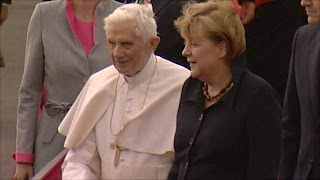Facebook is at it again. The social network is tweaking the home pages of its 750 million users, much to the chagrin of some very vocal folks.
The world's largest online social network is expected to announce even more changes on Thursday, when it holds its annual f8 conference in San Francisco for developers who create games and other applications for its site.
The gathering follows a trickle of changes to Facebook in the past few of weeks. Some, such as larger photo displays and a feature that makes it easier to group friends into categories, were met with approval - or at least silence, which in the age of social-media oversharing could well be considered an endorsement.
Then came Wednesday, when many users woke up to find their homepages altered, with what Facebook calls "top stories" on the top of their pages, followed by "recent stories" listed in chronological order. On the right side, meanwhile, there's something called a "ticker," a live feed of all the ongoing activity that also appears in users' news feeds. It's a kind of Facebook inside Facebook, if you will.
By mid-morning, the words "new Facebook" quickly became one of the most discussed topics on Twitter. Many comments were negative, though some pointed out that Facebook makes many changes to its site and people eventually get used to it.
Then there were the jokes. John Kovalic from Madison, Wisconsin poked fun at Netflix's recent public relations fiasco, tweeting: "On the plus side, at least the new Facebook isn't calling itself "Qwikface." (Netflix, for those who missed it, is facing a big backlash from its subscribers because it raised prices and renamed its popular DVD-by-mail service "Qwikster.") Another online critic liked Facebook to a pop star who's addicted to cosmetic surgery.
For its part, Facebook has long asserted that it makes changes to keep users engaged, and that those alterations are often based on user requests. Other tweaks derive from the company's study of activity on Facebook and what it thinks people will enjoy using. Privacy advocates, meanwhile, have contended that Facebook changes its site in order to get people to share as much as possible about their habits, hobbies and likes -all to give advertisers a better picture of who to target.
In reality, it's a little of both. The way Facebook sees it, the more people enjoy using the site, the more time they'll spend there.
The latest changes are "tailored at making sure this news feed is what you want to see," said Mike Schroepfer, vice president of engineering at Facebook.
And, so far, that's been good for business -despite the grumblings of vocal minority of Facebook users. The company is expected to bring in $3.8 billion in worldwide advertising this year and $5.8 billion in 2012, according to research firm eMarketer.
Facebook is well-aware of perhaps the biggest downside of being the world's largest social network: With so many users, pleasing all of them is difficult. Schroepfer said the tweaks to the news feed are meant to appeal to a broad range of people, whether they have 15 friends and log in once a week or 800 and spend four hours a day on the site.
"We want to make sure we provide the right kind of basics to make sure that the core of Facebook is sharing and (seeing) the right kind of things," he said.
Facebook, though clearly king of social networks, is also competing with Twitter and Google Plus for attention. As such, the race to add new features has the potential to confuse users, said Debra Aho Williamson, principal analyst at eMarketer.
"It's like...who's going to come up with the best, most interesting features to keep people using their service," she said. "Everyone is copying each other, making sure whatever feature Twitter offers, Facebook offers, whatever Facebook offers, Google Plus offers."
On Thursday, Facebook is likely to push forward again, unveiling a slew of new ways to share content on its site and beyond. It keeps changing because if it doesn't, it could go the way of MySpace, the once-great social network that even an ownership stake by Justin Timberlake seems unlikely to rescue.
"The idea of a social network and what a social network is continues to evolve," Williamson said. "First it was creating a profile and sending status updates to your friends. Facebook is (now) going toward helping companies be more social and helping consumers and users feel like they have a stronger connection to these...businesses, media and things they are interested in."




